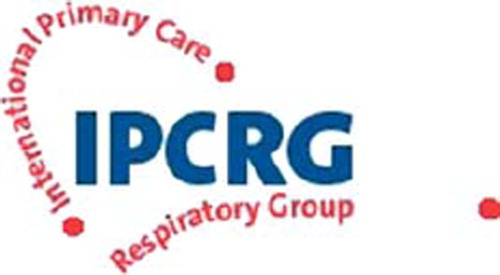News
Research news
We are delighted to report that Prof. David Price, who chaired our Research Committee for a decade, has published the results of two pragmatic trials sponsored by the NHS’ Health Technology Assessment programme, Leukotriene antagonists as a first-line or add-on asthma controller therapy (N Engl J Med. 2011;364:1695–707). It also attracts an editorial focusing on the value and limitations of pragmatic studies. In this, the research team is congratulated on its excellent retention of patients from 53 UK general practices over the two years of the trial.
As the Editorial questions, during periods of asthma worsening, how should treatment be changed? The guidelines, based on randomized controlled trials, recommend that the first step in the management of uncontrolled asthma should be an inhaled glucocorticoid. There are alternatives, however. Another possible first-line asthma-controller medication is an oral leukotriene-receptor antagonist (LTRA). In these open label trials, asthma symptoms were the primary outcome measure. In each trial, the LTRA was essentially equivalent in efficacy to either the inhaled glucocorticoid as first-line controller therapy or to the LABA as add-on therapy.
Amsterdam Scientific Meeting
The IPCRG was overwhelmed by the enrolment for our second ‘no-frills’ one-day scientific meeting; over 50 abstracts submitted and over 160 delegates registered. Forty-four abstracts from this meeting showcasing new pragmatic respiratory research in primary care from around the world will shortly be available to view in the extended online edition of the PCRJ.
Education
At the Amsterdam meeting we test the findings from our wide-ranging review of the literature about what educational interventions work to improve clinical behaviour with the ultimate aim of improved patient outcomes. This will inform the launch of our E-Quality initiative, to work with a number of member countries to identify educational needs and test the optimum way to deliver this locally. This is a very timely project given the focus on non-communicable disease (NCD) in all countries, but particularly low and middle income countries, this project is carried out by organisations we support such as the NCD Alliance, which is part of the team that published in the Lancet series recently: Health professionals for a new century: transforming education to strengthen health systems in an interdependent world (doi:10.1016/S0140–6736(10) 61854–5). This activity is a prelude to The UN High-Level Meeting on NCDs in September 2011 where we are invited to present a clear message about the importance of primary care to develop high standards of care in non-communicable conditions. The NCD Alliance and The Lancet NCD Action Group propose five overarching priority actions for the response to the crisis in NCDs—leadership, prevention, treatment, international cooperation, and monitoring and accountability—and the delivery of five priority interventions—tobacco control, salt reduction, improved diets and physical activity, reduction in hazardous alcohol intake, and essential drugs and technologies (doi:10.1016/S0140–6736(11)60393–0). We have expanded our website to include news and resources on NCDs:
http://www.theipcrg.org/resources/resources_chronicdiseasemgt.php
We add our voice to the NCD Alliance arguments to persuade the UN to adopt these priorities and enlarge the Millennium Development Goals accordingly. We argue that governments should invest in:
Solutions that reduce women and children's exposure to indoor smoke
Production of real-life evidence that feeds into guidelines
Right incentives for primary care to support patients to stop smoking
Universal access to good quality inhaled medicines for asthma and training in how to use them
Integrated care involving patients, multi-disciplinary health and social care
Practical training and education for primary care led by peers
Compact, pragmatic NGOs such as the IPCRG that can leverage major clinician-led change
IPCRG membership—could you follow their lead?
The IPCRG supports the development of new national primary care groups with a shared interest in respiratory care. They can then join us as associate members, and once established, as full members. Here are some recent activities from our membership:
In early May GRAP, the Spanish group held its second meeting in Barcelona with more than 90 attendees from all over Spain. Highlights included multidisciplinary presentations on informatics to support disease management and patient-centred care, new pharmacological evidence and new tests for pulmonary function. GRAP is also producing innovative Spanish phenotype-based guidelines on COPD management (gesEPOC) due to be launched very soon.
The same weekend, 150 primary care professionals from our Nordic groups attended a joint Nordic conference.
Our Dutch group, CAHAG, is helping deliver a European Respiratory Society Primary Care Day on Saturday 24 September at which many IPCRG colleagues are speaking. The programme was published in the last edition of the PCRJ. Do go!
To find out more about membership, contact our Business Manager, Sam Louw [email protected] and visit our web site: http://www.thei pcrg.org/members/index.php
Primary care respiratory networks
To increase the research capability of primary care around the world, and to assist in communication on research topics between colleagues, we are setting up regional networks, each led by one of our Research sub-committee. For the appropriate contact, visit our web site http://www.theipcrg.org/members/index.php
RespiratoryAt@Glance
Subscribe to the IPCRG's free monthly one page RespiratoryAt@Glance that features summaries of key papers that meet our criteria: relevant to primary care and published within the last six months. Register at http://www.theipcrg.org/mail/index.php
Wonca Europe Warsaw
In September, the IPCRG is scheduled to present four seminars/workshops in Warsaw. These include allergies in General Practice; wheezing and asthma in children; poorly controlled asthma; and early diagnosis and management of COPD. These will be interactive, so come prepared to do some work.
We look forward to seeing you there, and as well, come visit our stand.

